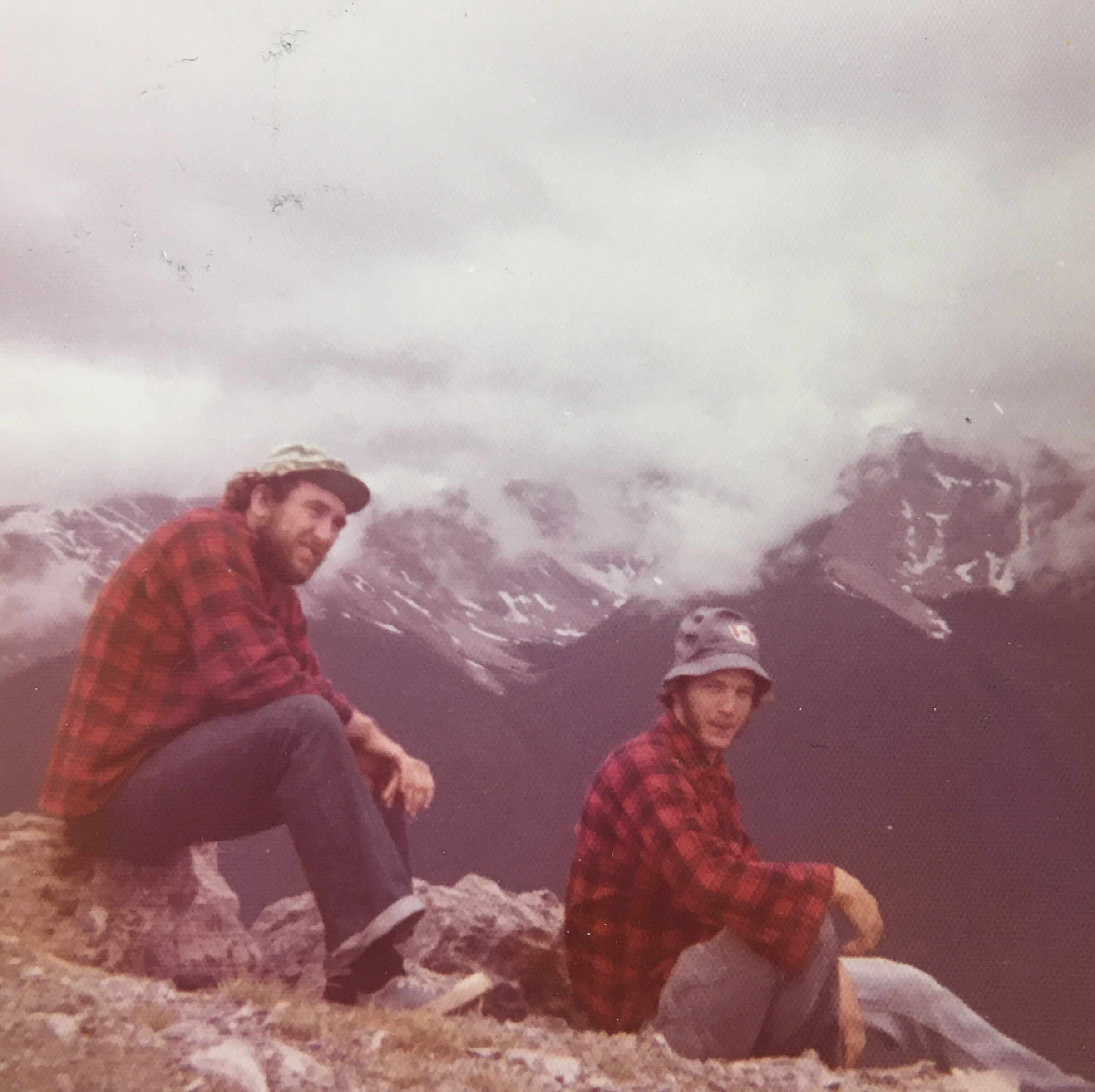Stories about disappearance and protagonists who seek an alternate purpose in life beyond what society prescribes have always intrigued me. I live through the words on the page, imagining myself in their shoes and being brave enough to live without the comfort of predictability. I daydream of a life unbound.
In his youth, my father exhibited this carefree spirit and I feel some of his determination to tread his own path runs through my blood as well. In the seventies, before this became commercialized by the tourism industry, my father and two of his friends got on their 10-speed bikes and peddled from Winnipeg to the west coast camping on the side of the road or in forests shadowed by the Canadian Rockies. When he’d tell me stories about the adventure, about the physical hardship, the encounters with wildlife—including a pack of curious wolves that trailed them for a bit down the Icefields Parkway near Jasper—and the connection to nature that he experienced, I sat in awe. I could sense the feeling of accomplishment and fulfillment emanating off him and longed to lead a life where I could feel the same sense of purpose, if only briefly.
Living off radar for a bit can be incredibly recharging. I’ve experienced this on an elementary level during my solo travels but these have only been a few weeks at a time (and, sadly, never as disconnected as I probably need). Traveling to a new world, one in which I don’t understand the custom or language, forces me to be present, receptive and sharp. Being reliant solely upon my faith in the affability of strangers and the power of my intuition connects me to a deeper sense of humanity and realization of my own strength. But even on these escapades, I am still safely ensconced in a metropolis built for the comfort of man. The older I get, the more I (like my father) want a challenge and to reconnect with nature.
A few months ago, a book I read made me tumble into a deep rabbit hole of exploration on this pipe dream and people who were brave enough to choose an unconventional path in life. “Into Thin Air” by author/mountaineer Jon Krakauer is one of the most riveting, well-crafted works of non-fiction I have ever read in my life. So awestruck was I by his tale of climbing Mount Everest that I started researching my own possible adventure in the Himalayas and immediately went out to buy as many of his other works as I could. This included the work he is perhaps most known for - “Into The Wild”.
Since that book’s release, the story of Chris McCandless has become legendary; although his legacy is polarizing. Leaving his home, family and life savings in pursuit of the open road and a life far removed from capitalism and other societal constructs, Chris lived his dream while navigating the United States in pursuit of deeper meaning in life. Based on the journals and connections he left behind, it appeared he found it in places as varied as Arizona, South Dakota and, the place he perished, Alaska. His tale had an abrupt, heartbreaking end that some critics say underlines his naïveté. But another camp of idealistic dreamers has elevated him to myth-like status, making the backcountry of the 49th state, in particular the location of Bus no.142, a spot for pilgrimage. “Into the Wild” is a short book with a big impact detailing his brief, albeit well-lived, life.
If we live a life where we only see few things, visit few places, and meet few people, we pass through existence having only covered a few measures of distance - but to live a life well lived, with many perspectives and experiences, is to touch upon every part of the tapestry of what it means to be human. As I enter a new decade, I no longer aim to be the girl with the most cake. Instead, I crave authenticity. I search for meaning in script and the stars. In that regard, I admire Chris McCandless for his rejection of what society has become and his pursuit of his own destiny. We should all be so lucky to realize our purpose.
“Don’t settle down and sit in one place. Move around, be nomadic, make each day a new horizon. “







